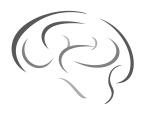
Dr. Matthew Kniss, MD
Physician
Neurology
Specialty
Clinical Neurophysiology
Provide FeedbackMedical Expertise of Dr. Matthew Kniss, MD
Dr. Kniss diagnoses and treats a wide-range of neurological disorders, with particular focus on Epilepsy, Clinical Electrophysiology, Botox therapy, and VNS management.
About Dr. Matthew Kniss, MD
Matthew Kniss, MD is a board-certified neurologist providing care to patients in the Lincoln Nebraska area at Neurology Associates, PC
Dr. Kniss is board-certified in adult neurology and clinical neurophysiology.
Dr. Bobenhouse is a member of several national professional organizations, as well as the Nebraska Medical Association and Lancaster County Medical Society.
Conditions Treated
Alzheimer's Disease
Diabetic Neuropathy
Epilepsy
Headaches
Multiple Sclerosis
Parkinson's Disease
Restless Leg Syndrome (RLS)
Spasticity
Stroke
Focal Dystonias
Procedures & Services
EEG (Electroencephalogram)
MRI of the Head (Magnetic Resonance Imaging)
Botulinum Toxin for Focal Dystonia
Botulinum Toxin for Spasticity
Electromyogram (EMG)
Patient Education Resources
Cluster Headache at Neurology Associates, P.C.
Definition of Cluster Headache A cluster headache is one of the most painful types of headache. A striking feature of cluster headache is that the attacks occur in cyclical patterns, or clusters — which gives the condition its name. Bouts of frequent attacks — known as cluster periods — may last from weeks to months, usually followed by remission periods when the headache attacks stop completely. The pattern varies from one person to another, but most people have one...
Definition of Cluster Headache A cluster headache is one of the most painful types of headache. A striking feature of cluster headache is that the attacks occur in cyclical patterns, or clusters — which gives the condition its name. Bouts of frequent attacks — known as cluster periods — may last from weeks to months, usually followed by remission periods when the headache attacks stop completely. The pattern varies from one person to another, but most people have one...
Definition of Transient Global Amnesia at Neurology Associates, P.C.
Definition of Transient Global Amnesia Transient global amnesia is a sudden, temporary episode of memory loss that can't be attributed to a more common neurological condition, such as epilepsy, transient ischemic attack, stroke or head injury. During an episode of transient global amnesia, your recall of recent events simply vanishes, so you can't remember where you are or how you got there. You may also draw a blank when asked to remember th...
Definition of Transient Global Amnesia Transient global amnesia is a sudden, temporary episode of memory loss that can't be attributed to a more common neurological condition, such as epilepsy, transient ischemic attack, stroke or head injury. During an episode of transient global amnesia, your recall of recent events simply vanishes, so you can't remember where you are or how you got there. You may also draw a blank when asked to remember th...
Essential Tremor at Neurology Associates, P.C.
Essential tremor can affect almost any part of your body, but the trembling occurs most often in your hands — especially when you try to do simple tasks, such as drinking a glass of water, tying your shoelaces, writing or shaving. You may also have trembling of your head, voice or arms. By definition, essential tremor isn't caused by other diseases or conditions, although it's sometimes confused with Parkinson's disease. It can occur at any age, but is most common ...
Essential tremor can affect almost any part of your body, but the trembling occurs most often in your hands — especially when you try to do simple tasks, such as drinking a glass of water, tying your shoelaces, writing or shaving. You may also have trembling of your head, voice or arms. By definition, essential tremor isn't caused by other diseases or conditions, although it's sometimes confused with Parkinson's disease. It can occur at any age, but is most common ...
Meralgia Paresthetica at Neurology Associates, P.C.
Definition of Meralgia Paresthetica Meralgia paresthetica is a condition characterized by tingling, numbness and burning pain in the outer part of your thigh. The cause of meralgia paresthetica is compression of the nerve that supplies sensation to the skin surface of your upper leg. Tight clothing, obesity or weight gain, and pregnancy are common causes of meralgia paresthetica. However, meralgia paresthetica can also be due to local trauma or from a disease, such as diabetes. In ...
Definition of Meralgia Paresthetica Meralgia paresthetica is a condition characterized by tingling, numbness and burning pain in the outer part of your thigh. The cause of meralgia paresthetica is compression of the nerve that supplies sensation to the skin surface of your upper leg. Tight clothing, obesity or weight gain, and pregnancy are common causes of meralgia paresthetica. However, meralgia paresthetica can also be due to local trauma or from a disease, such as diabetes. In ...
Multiple Sclerosis at Neurology Associates, P.C.
Definition of Multiple Sclerosis Multiple sclerosis (MS) is a potentially debilitating disease in which your body's immune system eats away at the protective sheath that covers your nerves. This interferes with the communication between your brain and the rest of your body. Ultimately, this may result in deterioration of the nerves themselves, a process that's not reversible. Symptoms vary widely, depending on the amount of damage and which particular nerves are affe...
Definition of Multiple Sclerosis Multiple sclerosis (MS) is a potentially debilitating disease in which your body's immune system eats away at the protective sheath that covers your nerves. This interferes with the communication between your brain and the rest of your body. Ultimately, this may result in deterioration of the nerves themselves, a process that's not reversible. Symptoms vary widely, depending on the amount of damage and which particular nerves are affe...
Parkinson's Disease at Neurology Associates, P.C.
Definition of Parkinson's Disease Parkinson's disease develops gradually, often starting with a barely noticeable tremor in just one hand. But while tremor may be the most well-known sign of Parkinson's disease, the disorder also commonly causes a slowing or freezing of movement. Friends and family may notice that your face shows little or no expression and your arms don't swing when you walk. Speech often becomes soft and mumbling. Parkinson's symptoms tend to worsen a...
Definition of Parkinson's Disease Parkinson's disease develops gradually, often starting with a barely noticeable tremor in just one hand. But while tremor may be the most well-known sign of Parkinson's disease, the disorder also commonly causes a slowing or freezing of movement. Friends and family may notice that your face shows little or no expression and your arms don't swing when you walk. Speech often becomes soft and mumbling. Parkinson's symptoms tend to worsen a...
Post-concussion Syndrome at Neurology Associates, P.C.
Definition of post-concussion syndrome Post-concussion syndrome is a complex disorder in which concussion symptoms — such as headaches and dizziness — last for weeks and sometimes months after the impact that caused the concussion. Concussion is a type of mild traumatic brain injury, usually occurring after a blow to the head. Loss of consciousness isn't required for a diagnosis of concussion. In some cases, only a brief lapse of memory or a feeling of being dazed...
Definition of post-concussion syndrome Post-concussion syndrome is a complex disorder in which concussion symptoms — such as headaches and dizziness — last for weeks and sometimes months after the impact that caused the concussion. Concussion is a type of mild traumatic brain injury, usually occurring after a blow to the head. Loss of consciousness isn't required for a diagnosis of concussion. In some cases, only a brief lapse of memory or a feeling of being dazed...
Rebound Headache at Neurology Associates, P.C.
Definition of Rebound Headache You feel a headache coming on, so you reach for a pain reliever. Or maybe you take pain medication in advance — even every day — to stave off frequent headaches. After all, that's what pain relievers are for, right? Think again. Pain relievers may offer quick relief for occasional headaches. But there's a limit. If you find yourself taking pain medication more than two or three days a week, you may actually be contributin...
Definition of Rebound Headache You feel a headache coming on, so you reach for a pain reliever. Or maybe you take pain medication in advance — even every day — to stave off frequent headaches. After all, that's what pain relievers are for, right? Think again. Pain relievers may offer quick relief for occasional headaches. But there's a limit. If you find yourself taking pain medication more than two or three days a week, you may actually be contributin...
Thoracic Outlet Syndrome at Neurology Associates, P.C.
Definition of Thoracic Outlet Syndrome Thoracic outlet syndrome is a group of disorders that occur when the blood vessels or nerves in the thoracic outlet — the space between your collarbone (clavicle) and your first rib — become compressed. This can cause pain in your shoulders and neck and numbness in your fingers. Common causes of thoracic outlet syndrome include physical trauma from a car accident and repetitive injuries from on-the-job or sports-related activities. Ev...
Definition of Thoracic Outlet Syndrome Thoracic outlet syndrome is a group of disorders that occur when the blood vessels or nerves in the thoracic outlet — the space between your collarbone (clavicle) and your first rib — become compressed. This can cause pain in your shoulders and neck and numbness in your fingers. Common causes of thoracic outlet syndrome include physical trauma from a car accident and repetitive injuries from on-the-job or sports-related activities. Ev...
Trigeminal Neuralgia at Neurology Associates, P.C.
Trigeminal neuralgia is a chronic pain condition that affects the trigeminal nerve, which carries sensation from your face to your brain. If you have trigeminal neuralgia, even mild stimulation of your face — such as from brushing your teeth or putting on makeup — may trigger a jolt of excruciating pain. You may initially experience short, mild attacks, but trigeminal neuralgia can progress, causing longer, more frequent bouts of searing pain. Trigeminal neuralgia affects wom...
Trigeminal neuralgia is a chronic pain condition that affects the trigeminal nerve, which carries sensation from your face to your brain. If you have trigeminal neuralgia, even mild stimulation of your face — such as from brushing your teeth or putting on makeup — may trigger a jolt of excruciating pain. You may initially experience short, mild attacks, but trigeminal neuralgia can progress, causing longer, more frequent bouts of searing pain. Trigeminal neuralgia affects wom...
Education & Training
- Undergraduate: Nebraska Wesleyan University, Lincoln, Nebraska
- Medical School: University of Nebraska College of Medicine, Omaha
- Internship: Internal Medicine, St. Joseph's Hospital and Medical Center, Phoenix
- Residency: Barrow Neurological Institute, Phoenix
- Clinical Neurophysiology Fellowship: Barrow Neurological Institute, Phoenix
Professional Affiliations
Neurology Associates, P.C.

The physicians of Neurology Associates, P.C. are board-certified with the American Board of Psychiatry and Neurology and members of the American Academy of Neurology.
We treat a wide range of neurologic disorders and offer a variety of diagnostic tests and procedures, including Continuous Video-EEG monitoring, Vagal Nerve Stimulator (VNS), Botulinum Toxin (Botox, Myobloc, or Dysport) injections, Tysabri infusions, Avonex injections.
In addition to our main Lincoln office, we hold clinics in the outlying communities of Albion, Auburn, Beatrice, Fairbury, Geneva, and York.
We treat a wide range of neurologic disorders and offer a variety of diagnostic tests and procedures, including Continuous Video-EEG monitoring, Vagal Nerve Stimulator (VNS), Botulinum Toxin (Botox, Myobloc, or Dysport) injections, Tysabri infusions, Avonex injections.
In addition to our main Lincoln office, we hold clinics in the outlying communities of Albion, Auburn, Beatrice, Fairbury, Geneva, and York.